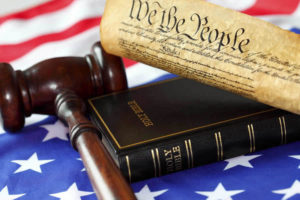A former colleague of mine used to insist that because the United States Constitution doesn’t contain the phrase “separation of church and state” that the concept somehow is not relevant.
Well, I would remind him that the First Amendment about a prohibition against writing laws that establish a state religion implies the separation graphically.
Enter the new man nominated to become the U.S. attorney general, William Barr. He has declared his skepticism about the “secular” state the founders created in the late 18th century. He wants to invoke “God’s law” when enforcing the laws of the land.
I am going to presume he means the laws of the Christian God. But what about the laws of all the other gods that Americans worship? The Islamic god, the Jewish god, the Hindu god, the Buddhist god, the Shinto god? Do they matter? Of course they do! Or at least they should.
Except the founders created a Constitution that say there should be no law passed “with respect” to a particular religion. It stipulates there should be “no religious test” for anyone seeking public office.
The words “Christian,” “Christianity” or “Jesus Christ” are not mentioned in the Constitution. Nor does it mention “Jewish” or “Muslim” or “Buddhist” or “Hindu.”
So, to the AG-designate, I merely want to urge him to stick to enforcing the laws of the land, as enacted by Congress, signed by the president and affirmed by the courts.
